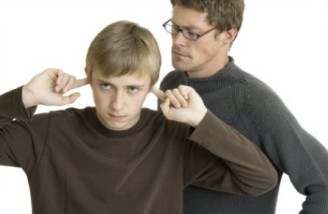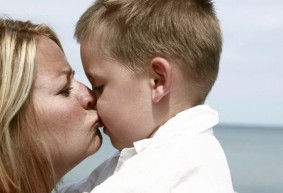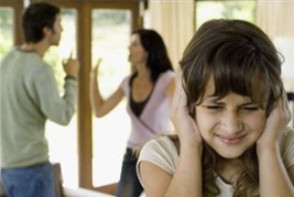|
Combine a depressed or emotionally deprived parent and a defiant teen-ager, and you are brewing up a storm. Many other factors can also lurk around the corner in family life, cumulating forces to create various problems. Usually a family cannot pinpoint what causes the problem or when it actually started. What they do know is that, once started, the problem seems out of their control. The Many Faces of Family DistressFamily distress seen in the counseling office include but are not limited to the following:
The Control Strategy
Through the control strategies, the parents are trying to get the teen-agers to change…the husband is trying to get the wife to change… and the wife, perhaps the in-law to change… Sometimes this control strategy works, especially if both parties are both reasonable. But many times it only leads to frustration. Loneliness is the most frequent result in a family of frustration. Conflicts are the Family’s Creative Ways of Forcing ChangeFamily often views conflicts as the culprit of their problems. But a therapist sees them for what they truly are, with a greater appreciation.You see, our behaviors are the reflection of our relations with other family members. Therefore, it is important to focus on what is taking place "among" the family members, not on the intra-psychic characteristics of an particular individual family member.
For example, a mother and a young child might be extremely close to accommodate for the emotionally or physically absent husband. This structure serves the family well. But when the child enters the puberty developmental stage, his needs change
from symbiosis to autonomy. The original structure of the family no longer
works like a smooth machine any more.
Conflicts are, indeed, creative ways that family members intuitively rely on to force a change in the
malfunctioning family structure.
Family Conflicts are Intensely Emotional in NatureOf course, the creative task of change is often painful because family conflicts are intensely emotional in nature.From the perspective of attachment theory, family interactions are loaded with unspoken affects and emotions, be them positive or negative.
This attachment distress can show up as:
Attachment Distress in Vicious CycleWhen parents and their teenage children fight over an issue, such as curfews, at a deeper level, the attachment needs on both parties are injured, causing attachment distress. For example, the mother feels disrespected as a parent, and the child feels unloved as an individual of his own right for self-expression and self-determination, and the father feels powerless, withdrawing even more into his escape.When this pattern of attachment distress repeats itself overtime, it leads to disconnection and alienation within the family. They become overwhelmed with deep feelings of being alone in family. The destructive pattern creates a vicious cycle, reinforced by poor communication. Poor communication is not really the cause of the problem, but it certainly has the power to inflame the existing problem. As the dysfunctional pattern repeats itself over time, it is literally
impossible to experience safety, warmth, and love within the family.
Targeting the Real ProblemIn family therapy, the therapist will try to assess and understand the family conflict in attachment terms and through structural analysis.The therapist targets the destructive interaction pattern as the shared enemy of all family members. No one in the family is to blame.
Therapy GoalFamily therapy aims to understand the hidden function that the interpersonal conflicts try to achieve, then help the family achieve that very function through a conflict-free alternative solution.
During the family session, the therapist actively uses techniques to divert it from negative family interaction while facilitating new adaptive interactions between family members in sessions. This leads to the most change in therapy. Emotional connection, caring engagement and individual autonomy reach a healthy balance.
This connectedness provides the context within which all family members can learn, love, survive, work, create, grow, and be true to the call of their own inner self. Join me now to take on this path of happier life and more fulfilling relationships! Tell your friends about inner-awakening-counseling.com! They too deserve this life transforming and enriching path. Dr. Mei-whei Chen, Licensed Clinical Psychologist 737 N Michigan Ave, Ste 2130, Chicago, Illinois 60611 847-915-0331 Website: www.inner-awakening-counseling.com Email: Mei@inner-awakening-counseling.com Copyright © 2013 by Dr. Mei-whei Chen |









